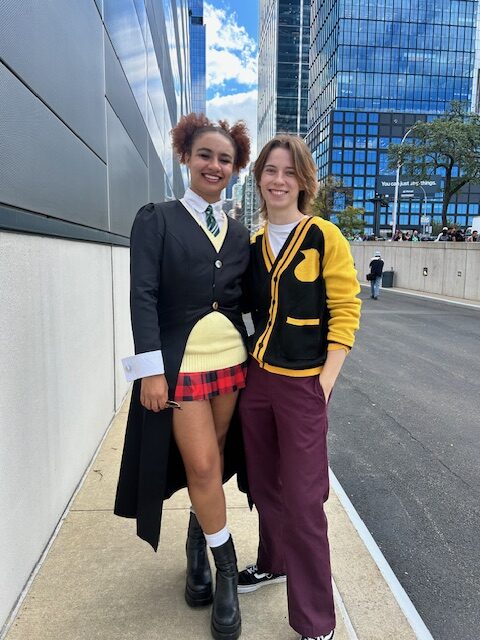
Alex, an undocumented immigrant who asked to not be photographed, locks the offices of the Coalicion de Derechos Humanos. She volunteers twice a week educating and aiding other immigrants in similar situations. Photo by Emily Canal
TUCSON, Ariz. — Martin’s eyes snap open at 4 a.m. every day, no matter what time he climbs into bed the night before. He says he wakes thinking about money, his family and the lingering possibility that he will be deported in several months.
“We are not living here illegally because we are paying for every single thing,” said Alex, Martin’s wife, who spoke on the condition of anonymity. “We are undocumented, but no human being is illegal.”
Time is dwindling for the Tucson couple. Martin and Alex are two of 11.1 million illegal immigrants living in the United States, according to the Pew Hispanic Center. They have filed for citizenship but face a 15-year wait, time Martin doesn’t have.
In June, Martin, who also spoke on the condition of anonymity, was arrested for failing to provide documents proving legal citizenship during a traffic stop. He was detained for 14 days and said he asked to see a judge to try to prolong the deportation process.
In five months, Martin will stand before a judge and plea to stay in the U.S. If the judge declines his request, he will be deported to Mexico.
“We are trying to extend it at much as possible,” Alex said. “If he goes, we will work here and send money to him.”
Erendira Castillo-Reina, an assistant federal public defender in Tucson, said her office has doubled in size in the last 10 years.
“It’s not that there are more people crossing,” said Castillo-Reina, 44, of Mexico City. “It’s that they are choosing to prosecute more.”
People are left to the mercy of plea agreements because citizenship is the only way to avoid deportation, she said. Earlier this month, Department of Homeland Security Secretary Janet Napolitano said authorities deported 392,862 immigrants in 2009.
According to the Pew Hispanic Center, approximately 300,000 illegal immigrants came into the U.S. between March 2007 and March 2010.
“I literally see myself in every person that I represent,” said Castillo-Reina, who immigrated to the U.S. when she was 5 years old. “Often times the only thing I can do for people is to be kind, bear witness and speak about what I see.”

In the office of the Coalicion de Derechos Humanos, Alex, an undocumented immigrant who asked to not be photographed, holds a homemade cross decorated with names of dead immigrants. Alex volunteers twice a week with the organization, which aims to prevent deaths through education. Photo by Emily Canal
Alex, a dark-haired woman of average stature, was clad in blue jeans and a grey Honey Nut Cheerios T-shirt. She habitually touched her hands and fidgeted with her fingers when she spoke of SB 1070, Arizona’s controversial anti-illegal immigration law.
“I think it’s the worst thing that could happen,” Alex said. “The police were already doing it, but now they get the permission to do it.”
Martin and Alex married in 1998 and left Mexico in 2000 after he lost his job. The couple got tourism visas to cross the border and stayed in Tucson through the allotted time.
“Someone was shot at the school we were suppose to send our kids,” Martin said.
Martin earns a living installing granite counter tops, and Alex cares for two elderly women in their homes. The couple currently lives in Alex’s mother’s home with their two undocumented children, who are 11 and 15. Martin said they left their apartment a year and half ago when he lost his job and could no longer afford rent.
Their daughter is currently enrolled in a college prep academy and tells her parents she is aware college may not be in the cards.
“She knows what is going on and is asking what is the point,” Alex said, nervously twirling the silver colored ring on her right middle finger. “She says, ‘No matter how hard I try, I am not going to college.’ ”


Comments
[…] Below is a photo of Alex, an undocumented immigrant living in the United States, holding a homemade cross decorated with the names of immigrants who died crossing the U.S.-Mexico border. Check out the story and other photographs. […]